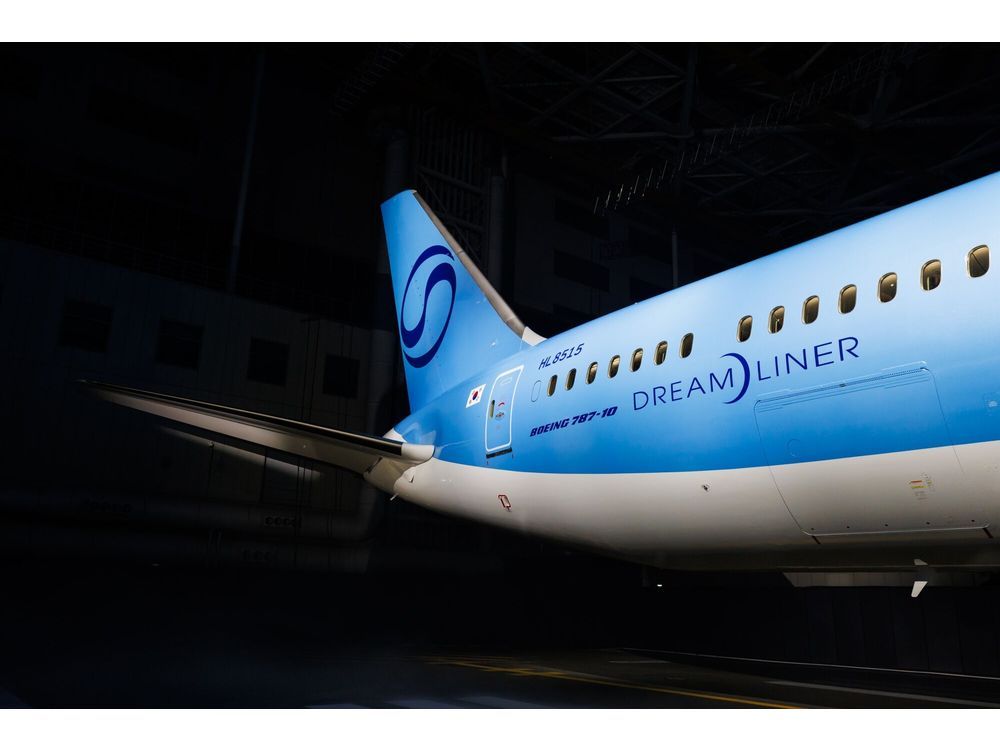Technology
South Korea Secures $50 Billion in US Deals Following Summit

South Korean companies have announced a series of significant agreements with U.S. businesses, totaling approximately $50 billion, following an in-person summit between leaders from both nations. The meeting took place in Washington on July 7, 2025, marking the first face-to-face encounter between South Korean President Lee Jae Myung and U.S. President Donald Trump since their respective elections.
This surge in business deals comes after a trade agreement was reached in late July, which established tariffs on U.S. imports from South Korea at 15%, a notable reduction from the 25% rate previously threatened by Trump. Although President Trump has previously criticized South Korea for maintaining unfair tariffs, the new agreement appears to have fostered a more cooperative atmosphere between the two nations.
Aviation Sector Leads the Way
The aviation industry emerged as a primary beneficiary from the summit. Korean Air Lines Co. plans to place an order for over 100 Boeing Co. jets, valued at $36.2 billion. This order includes 50 of Boeing’s 737 Max 10 jets, 25 787 Dreamliners, 20 777-9 widebody passenger models, and 8 777X freighters. This latest agreement builds on an earlier order made this year, bringing Korean Air’s total Boeing orders for 2025 to over 150 aircraft.
This expansion would more than double the airline’s existing fleet of Boeing jets, increasing its total order book to 175 planes upon finalization. Jet orders have become a prominent feature of diplomatic discussions since Trump returned to office in January, with the aim of addressing trade imbalances.
Energy and Infrastructure Investments
In the energy sector, state-owned Korea Gas Corp. signed an agreement to purchase up to 3.3 million tons of liquefied natural gas (LNG) annually from U.S. suppliers, including Trafigura. The imports are scheduled to begin in 2028 and will span a decade. This move aligns with a broader trend as countries from Europe to Asia are committing to greater purchases of American energy resources to strengthen trade relations.
Additionally, the European Union has pledged to buy $750 billion worth of American energy imports over three years, though fulfilling this promise presents challenges. Countries such as India have also agreed to increase their oil and gas imports, while South Korea is considering investments in a Trump-backed $44 billion LNG export project in Alaska.
In a related development, Centrus Energy Corp. has entered into a non-binding memorandum of understanding with Korea Hydro & Nuclear Power Co. and Posco International to explore potential investments aimed at expanding Centrus’ uranium enrichment plant in Ohio.
Automotive and Shipbuilding Investments
The automotive sector is also set to benefit significantly from these agreements. Hyundai Motor Group announced plans to increase its investment in the U.S. to $26 billion by 2028. This represents a $5 billion increase from the $21 billion investment unveiled earlier this year. The investment will support expanded production in automobiles, steel, and robotics, with plans to establish a new steel mill in Louisiana and a robotics facility capable of producing 30,000 units annually. This initiative is expected to create 25,000 new jobs.
In the shipbuilding sector, Samsung Heavy Industries Co. has signed a strategic partnership with U.S.-based Vigor Marine Group to provide maintenance and repair services for U.S. naval vessels. The collaboration aims to extend into commercial and specialty vessels, as well as joint shipbuilding projects. Earlier in July, South Korea had committed $150 billion to boost the struggling U.S. shipbuilding industry, seeking to enhance its strategic relevance in this critical sector.
As South Korea and the United States deepen their economic ties, these agreements reflect a commitment to mutual growth and collaboration, with significant implications for various sectors in both nations. As the landscape continues to evolve, the outcomes of these partnerships will be closely monitored by industry stakeholders and government officials alike.
-

 Politics4 weeks ago
Politics4 weeks agoSecwepemc First Nation Seeks Aboriginal Title Over Kamloops Area
-

 World5 months ago
World5 months agoScientists Unearth Ancient Antarctic Ice to Unlock Climate Secrets
-

 Entertainment5 months ago
Entertainment5 months agoTrump and McCormick to Announce $70 Billion Energy Investments
-

 Science5 months ago
Science5 months agoFour Astronauts Return to Earth After International Space Station Mission
-

 Lifestyle5 months ago
Lifestyle5 months agoTransLink Launches Food Truck Program to Boost Revenue in Vancouver
-

 Technology3 months ago
Technology3 months agoApple Notes Enhances Functionality with Markdown Support in macOS 26
-

 Lifestyle3 months ago
Lifestyle3 months agoManitoba’s Burger Champion Shines Again Amid Dining Innovations
-

 Top Stories2 months ago
Top Stories2 months agoUrgent Update: Fatal Crash on Highway 99 Claims Life of Pitt Meadows Man
-

 Politics4 months ago
Politics4 months agoUkrainian Tennis Star Elina Svitolina Faces Death Threats Online
-

 Sports5 months ago
Sports5 months agoSearch Underway for Missing Hunter Amid Hokkaido Bear Emergency
-

 Politics5 months ago
Politics5 months agoCarney Engages First Nations Leaders at Development Law Summit
-

 Technology5 months ago
Technology5 months agoFrosthaven Launches Early Access on July 31, 2025





















